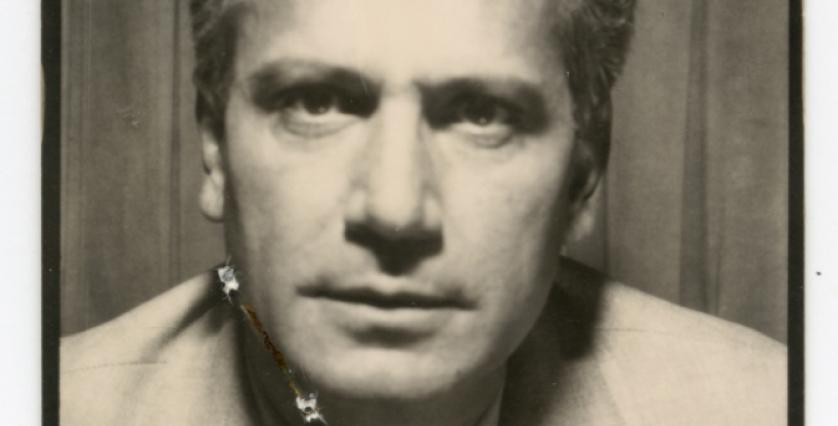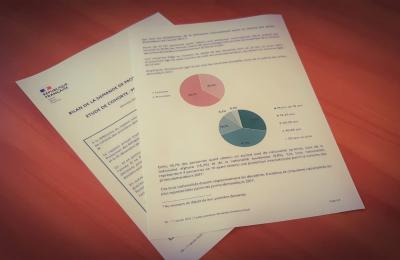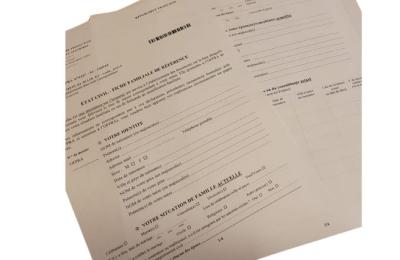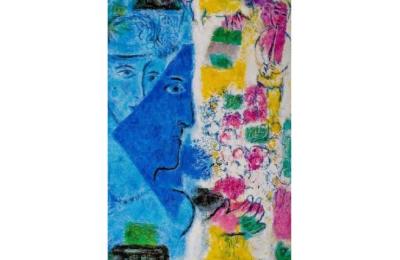Centenary of the birth of Jorge Semprún
In France as in Spain, the centenary of the birth of the writer Jorge Semprún (1923-2011) is being commemorated this year, which also provides an opportunity to highlight Ofpra's protection of Spanish refugees.

As Geneviève Dreyfus-Armand writes in the book published by Editions Loubatières to mark Ofpra's 70th anniversary in 2022, Jorge Semprún entered France in February 1939 with his family from the Netherlands, where his parents lived. He became a Communist activist in 1941 and joined the Resistance in 1942. Arrested in October 1943 by the German police near Joigny, imprisoned in Auxerre and tortured, he was deported to Buchenwald where, in January 1944, at the age of 20, he became prisoner number 44 904.
From 1945, like many exiled Republicans, he was recognised as a refugee by the Central Office for Spanish Refugees, then protected by Ofpra until 1969, when he obtained a Spanish passport.
A translator at UNESCO, in 1952 he became a permanent member of the Communist Party of Spain (PCE), which had been banned in France for two years. A member of the Central Committee and then the Political Bureau, he made numerous clandestine stays in Spain for ten years. Increasingly critical of the PCE's line, he was expelled from the party in January 1965.
Based in Paris, Jorge Semprún has established himself as an award-winning writer and screenwriter. He wrote the screenplays for films by Alain Resnais - The War Is Over, Stavisky -, Costa-Gavras - Z, The Confession, Special Section -, Pierre Granier-Deferre - A Woman at Her Window - and Joseph Losey - Roads to the South. In 1972, he made the documentary The Two Memories, released in France in 1974, an "investigation into Republican and Francoist memories", in which he gave the floor to representatives of all the currents in the Republican camp, marking his personal evolution since The War Is Over.
He published novels and numerous fictionalised autobiographies evoking the Nazi concentration camp, such as Le Grand Voyage (1963), L'Évanouissement (1967), Quel beau dimanche! (1980), L'Écriture ou la vie (1993) and Le Mort qu'il faut (2001). His third novel in French, La deuxième mort de Ramón Mercader, won the Prix Femina in 1969. This fake spy novel, based on the story of Ramón Mercader, the Spanish agent of the Soviet political police who assassinated Leon Trotsky in Mexico City in 1940, is an opportunity to evoke the history of the Communist movement from the Spanish Civil War to the death of Stalin.
His publications in Spanish - Autobiographie de Federico Sánchez (1977) and Federico Sánchez vous salue bien (1993) - deal with his activities in Spain as an underground activist and then as Minister of Culture between 1988 and 1991, in which he analyses his commitments and responsibilities with great lucidity. His European convictions are expressed in L'Homme européen (2005) and Une tombe au creux de nuages. Essai sur l'Europe d'hier et d'aujourd'hui (2010). He was elected to the Académie Goncourt in 1996.
This anniversary coincides with the launch of the digitisation of the Spanish refugee archives held by Ofpra, a project that follows on from the 27th Franco-Spanish summit in Barcelona on 19 January 2023, during which France and Spain reaffirmed their desire to continue their joint efforts to enhance Ofpra's historical archives relating to Spanish refugees, as part of the construction of democratic memory in Spain and Europe. A declaration of intent was signed on 18 January 2023 between Isaac Sastre de Diego, Director General of Cultural Heritage and Fine Arts at the Ministry of Culture and Sport of the Kingdom of Spain, and Julien Boucher, Director General of Ofpra.
For further information :
- Online publication on the protection of Spanish refugees at Ofpra (only available in French)
- The France Archives Portal thematic guide to Spanish War refugees in France (only available in French)


